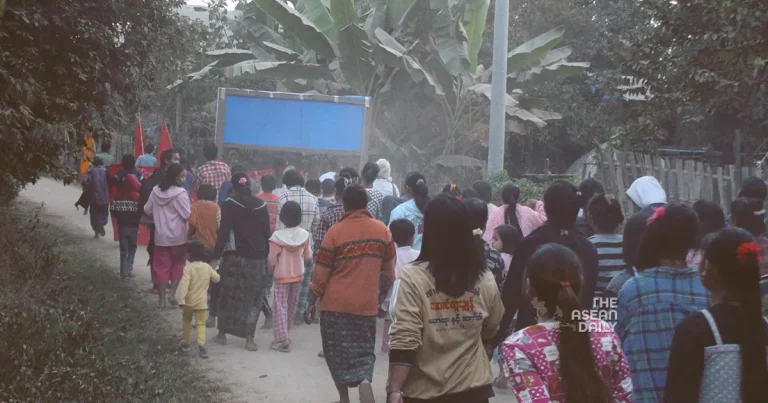11-3-2024 (YANGON) Against the backdrop of ongoing conflict in Myanmar’s Sagaing region, pregnant women face increasing challenges, with dangerous childbirth circumstances exacerbated by the fierce fighting between the military junta and ethnic armed organizations aligned with resistance groups opposing the 2021 coup. Official data reveals the toll on maternal and neonatal health, highlighting the urgent need for comprehensive healthcare solutions in the war-torn region.
Ma Hla May*, a 38-year-old farmer in Kyaung Than Village, Sagaing, recounted the difficulties of giving birth to her fourth child at home, assisted by a midwife. Amid the conflict, travel to a hospital for medical check-ups was impossible, leaving her without prenatal supplements and reliant on plain rice during pregnancy. Sleep deprivation added to the challenges, illustrating the dire circumstances faced by expectant mothers.
Volunteer medics, interviewed by The Straits Times, reported that fleeing military bombardment and malnourishment contribute to miscarriages and risky childbirth practices with limited medical attention in the forests. The situation is particularly critical in Sagaing’s Pale township, home to People’s Defence Forces resisting the junta, and villages supporting the military.
Before the 2021 coup, Myanmar ranked 50th globally in maternal mortality, with 179 deaths per 1,000 live births in 2020. However, conditions worsened post-coup as medical staff left junta-controlled facilities. The arrest of healthcare workers and restrictions on international organizations have further strained the healthcare system. At least 897 health workers have been arrested in the past three years, according to Insecurity Insight.
The deteriorating situation prompted resistance groups to use explosive-laden drones against hospitals occupied by the military, exacerbating the challenges faced by healthcare providers. In Sagaing, the conflict forces reliance on parallel healthcare services, with residents avoiding junta-controlled areas due to harassment.
The Pale Health Group, composed of volunteer medics operating under the People’s Revolution Front, faces constant challenges providing healthcare in conflict zones. Pregnant women, in particular, grapple with the risk of giving birth while on the run, as military raids target these makeshift healthcare services.
Amidst the peril, efforts are underway to establish a hospital providing emergency surgery and healthcare for villagers and resistance fighters. The Pale Health Group conducts 10 deliveries monthly in war refugee camps, operating under constant threat.
As the conflict persists, pregnant women like Ma Thet Mar*, who attempted a perilous journey to a public hospital, and those assisted by mobile medical teams, navigate life-threatening situations to bring new life into a war-torn world.




